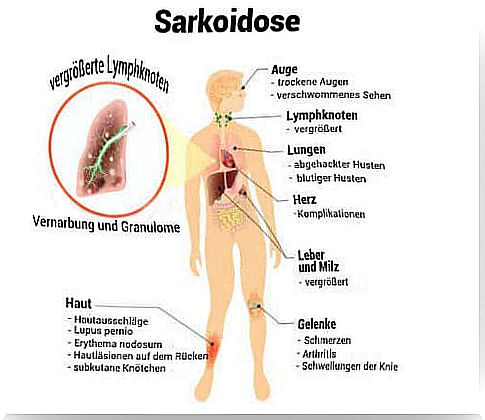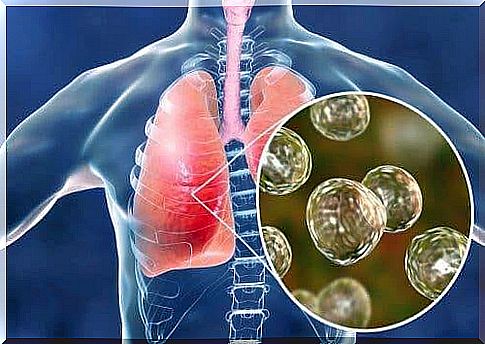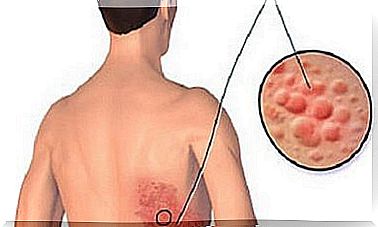What Is Sarcoid? Symptoms And Treatment
Sarcoidosis can be the result of an infection or an abnormal reaction in the immune system. People affected by sarcoid usually have a cough and difficulty breathing.

Sarcoid is a condition that causes abnormal collections of inflammatory cells called granulomas to form. Although sarcoid can occur in many organs, the lungs and lymph nodes are most commonly affected.
People with this disease usually cough and have difficulty breathing. However, symptoms can vary depending on which organs are affected.
Sarcoid can result from infection. However, it can also occur due to an abnormal immune system response. This condition usually affects people between the ages of 20 and 40. In addition, it almost always occurs in winter or early spring.
Symptoms of Sarcoid
Symptoms of sarcoid vary depending on the area affected and the extent of the disease. They also depend on the age and gender of the person concerned.
Some of the common symptoms are fever, fatigue, malaise, undefined chest pain, loss of appetite, and joint pain. Depending on the affected area, there are other specific symptoms that we will explain to you in more detail below.
Lungs

A chest x-ray will show enlarged lymph nodes in the lungs near the heart. When the condition is severe, the lungs overload the right side of the heart, causing right heart failure.
Sarcoid on the skin
When the skin is affected by sarcoid , a red rash develops on the shins. Usually this is accompanied by symptoms such as fever and joint pain.
Liver and spleen
A high percentage of people with sarcoid will have granulomas in their liver. However, people usually do not experience symptoms. Because of this, the liver appears to be functioning normally. Therefore, blood tests are needed which will provide accurate information about the extent to which the liver is affected.
eyes
When sarcoid affects the eyes, it causes redness and pain. In addition, persistent inflammation hinders the drainage of fluid from the eye. As a result, glaucoma forms.
heart
Granulomas that form on the heart can cause palpitations, dizziness, or heart failure.
Joints and muscles with sarcoid
Sarcoid inflammation causes a variety of joint pains. In general, the wrists, elbows, knees, and ankles are most affected.
Nervous system
In some cases, the cranial nerves are affected by this condition. As a result, symptoms such as double vision, hearing loss, and partial facial paralysis can occur.
Increased calcium levels
Sarcoid can also increase calcium levels in the blood and urine. This is because granulomas produce activated vitamin D, which improves calcium absorption.
High calcium levels cause loss of appetite, nausea, vomiting, thirst, and an excessive urge to urinate. If you have high calcium levels for a long time, kidney stones could form as a result. This in turn can lead to chronic kidney disease.
Treatment of Sarcoid

Most people with sarcoid disease do not need treatment. However, if needed, the doctor may administer nonsteroidal anti-inflammatory drugs to relieve pain and fever.
Corticosteroid Drugs: The First Choice To Treat Sarcoid
If sarcoid causes suffocation, joint or chest pain, and fever, doctors prescribe corticosteroids to treat. In addition, they prescribe these drugs when the patient has high calcium levels and skin lesions become deformed. They are also used in patients with impaired liver, heart and nervous system functions.
Although corticosteroids can be used to control symptoms and tissue damage caused by sarcoid, these drugs do not prevent pulmonary fibrosis.
Immunosuppressants
About 10% of people with sarcoid will not respond to treatment with corticosteroids alone. In these cases, doctors use methotrexate. If corticosteroids are ineffective or cause unpleasant side effects, doctors also give immunosuppressants.
These drugs include azathioprine, chloroquine or hydroxychloroquine and infliximab, for example. Hydroxychloroquine is effective in treating deforming skin lesions. It also helps patients who have high calcium levels.
In addition , this can also be an effective treatment if you have a painful inflammation of the lymph nodes. If sarcoid affects your heart, you may need a pacemaker.









